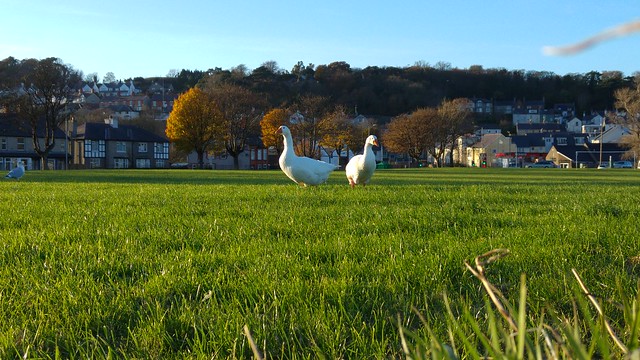

In this Adventure in Etymology we find out whether the words grass, graze and green are connected.
Grass [ɡɹɑːs/ɡɹas/ɡɹ̠æs] is:
- Any plant of the family Poaceae, characterized by leaves that arise from nodes in the stem and leaf bases that wrap around the stem, especially those grown as ground cover rather than for grain.
It comes from Middle English gras [ɡras] (grass, herb, pasture, meadow, fodder), from Old English græs [ɡræs] (grass), from Proto-Germanic *grasą [ˈɣrɑ.sɑ̃] (grass) from Proto-Indo-European *gʰreh₁- (to grow, become green) [source].
Words from the same roots include grow, green, gray/grey, graze and herb in English, groen (green) in Dutch, grasen (to graze) in German, and rohi (grass, medicine) in Estonian [source].
Incidentally, in British slang, a grass is an informer, police informer, or one who betrays a group (of criminals, etc) to the authorities. This is probably an abbreviation of grasshopper (police officer, informant), which is rhyming slang for copper (police officer) or shopper (informant).
So we’d better not let the grass grow under our feet and kick this into the long grass, because the grass is always greener on the other side of the fence and if we listen carefully, we can hear the grass grow.
Other grass-related idioms and expressions are available, and I wrote a song about the grass appearing greener called The Other Side. It goes something like this:
You can also listen to this podcast on: Apple Podcasts, Amazon Music,
